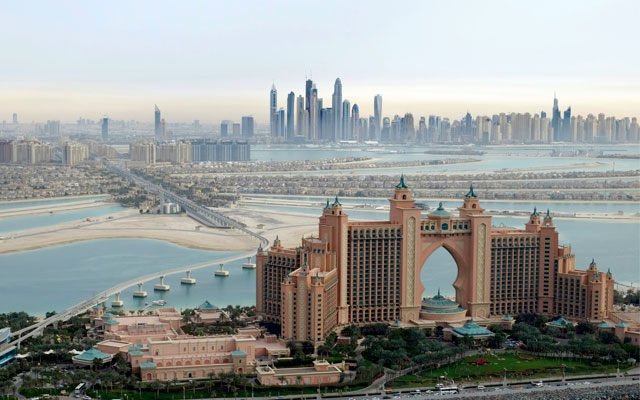Dubai wants to grow Singapore, Malaysia and Indonesian markets, but must first improve destination awareness and perceptions.
Dubai Business Events has identified Malaysia, Singapore and Indonesia as new source markets and has intensified efforts to attract more business events from these countries. Dubai also intends to establish itself as a premier business events destination in the eyes of planners based there.
In mid-2017, Dubai Corporation for Tourism and Commerce Marketing (DCTCM) opened new offices in the three markets in its bid to further grow the incentive segment.
These offices provide destination marketing support to the travel trade and media.

Also for the first time, Dubai Business Events organised a Discover Dubai Study Mission for events specialists and the media from Malaysia, Singapore and Indonesia. The four-day/three-night event in November 2017 highlighted key attractions and accommodation suitable for business events, and provided opportunities for South-east Asian events specialists to network with local suppliers.
Explaining Dubai Business Events’ latest choice of target markets, director Steen Jakobsen, told TTGmice that “these markets have direct air access to Dubai as well as a growing middle-class segment”.
However, Jakobsen revealed that Dubai Business Events is also keeping a keen eye on Phnom Penh, Cambodia.
“We have not entered the market yet. We will do research to see the potential of the market and whether we should establish a presence with people on the ground,” he added.
Dubai and Phnom Penh has been connected with a direct service operated by Emirates airlines since July 2017.
Indonesia and Malaysia events specialists who attended November’s Discover Dubai Study Mission, observed that Dubai tended to draw the interest of well-travelled clients who have already toured Europe and were looking for new options.
Beny, operation manager at Panorama JTB in Jakarta, said Dubai’s high price point places the destination in second place, after Europe.
“Our biggest challenge (in selling Dubai) is the package price. It comes close to European destinations like Brussels, Paris and Amsterdam. If you add another US$300, you can get a European destination for five days/four nights, full board. Entrance fee to parks and attractions in Dubai is also expensive.”
Adam Kamal, manager at Aidil Travel & Tours in Kuala Lumpur, agrees, adding that “a lack of awareness about Dubai in the Malaysian market” raises the challenge.
Pascal Dupuis, general manager of the five-star Address Boulevard, echoed Kamal’s observation.
He, too, sees the lack of awareness about Dubai’s products and services as the destination’s biggest challenge, especially with new markets.
Dupuis said: “Dubai is a dynamic city which has seen a meteoric rise and has emerged as a huge commercial hub. There is something new opening almost every month, be it new attractions, shopping outlets, restaurants and golf courses.
“(Events specialists) need to be constantly updated about these products and to see it for themselves for a first-hand experience.”
Jakobsen acknowledged that Dubai was always seen as being second to Europe as a business events destination, and that changing the perception would take time.
He remarked: “We need to send the message out that Dubai is an affordable destination. Over the last few years we saw a stronger presence of three- and four-star hotels. The theme park entrance tickets are also at a reasonably-priced level.”
As of November 2017, Dubai’s room inventory consisted of 35,702 rooms in the five-star category, 25,119 rooms in the four-star category, and 21,501 rooms in the one- to three-star category. There are also 131 hotel apartments of standard category, providing a total of 14,927 keys, as well as 64 hotel apartments of deluxe/superior category, providing a total of 9,588 keys.
To make Dubai even more attractive and value for money, Dubai Business Events provides marketing funding to organisers when more than one country is bidding for a particular event.
Jakobsen said: ”The subvention programme will depend on the size of the group, number of room nights generated, time of the year and whether it is aligned with the key industry sectors that Dubai wants to attract.”
These key industry sectors include healthcare, education, energy, transport, technology, water, space, robotics and aviation. They have been identified as part of UAE Vision 2021 National Agenda which sets the key themes for the socio-economic development of the emirates.
This story was first published in TTGmice April 2018 issue, as part of a Dubai destination feature. Access TTGmice electronic magazines by clicking here.





















